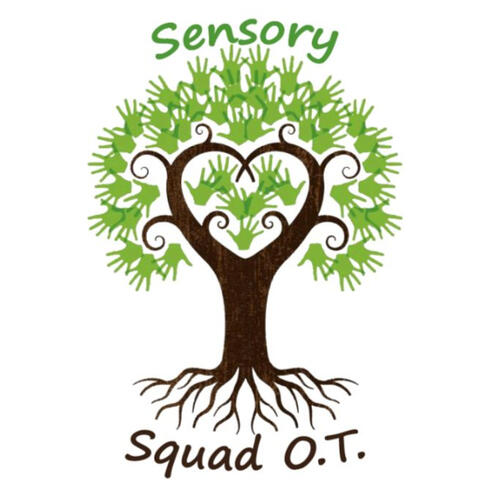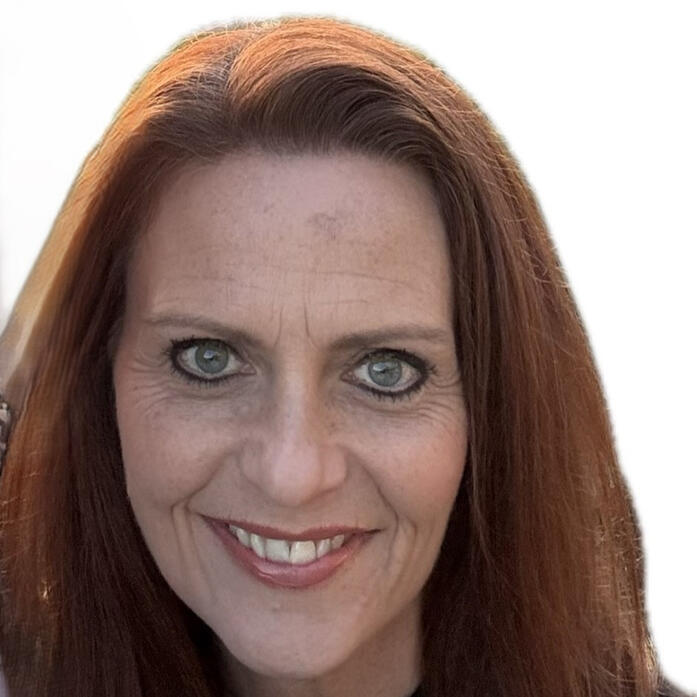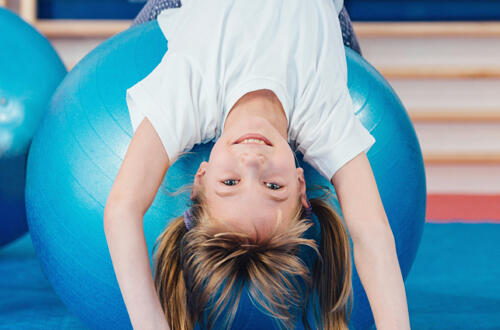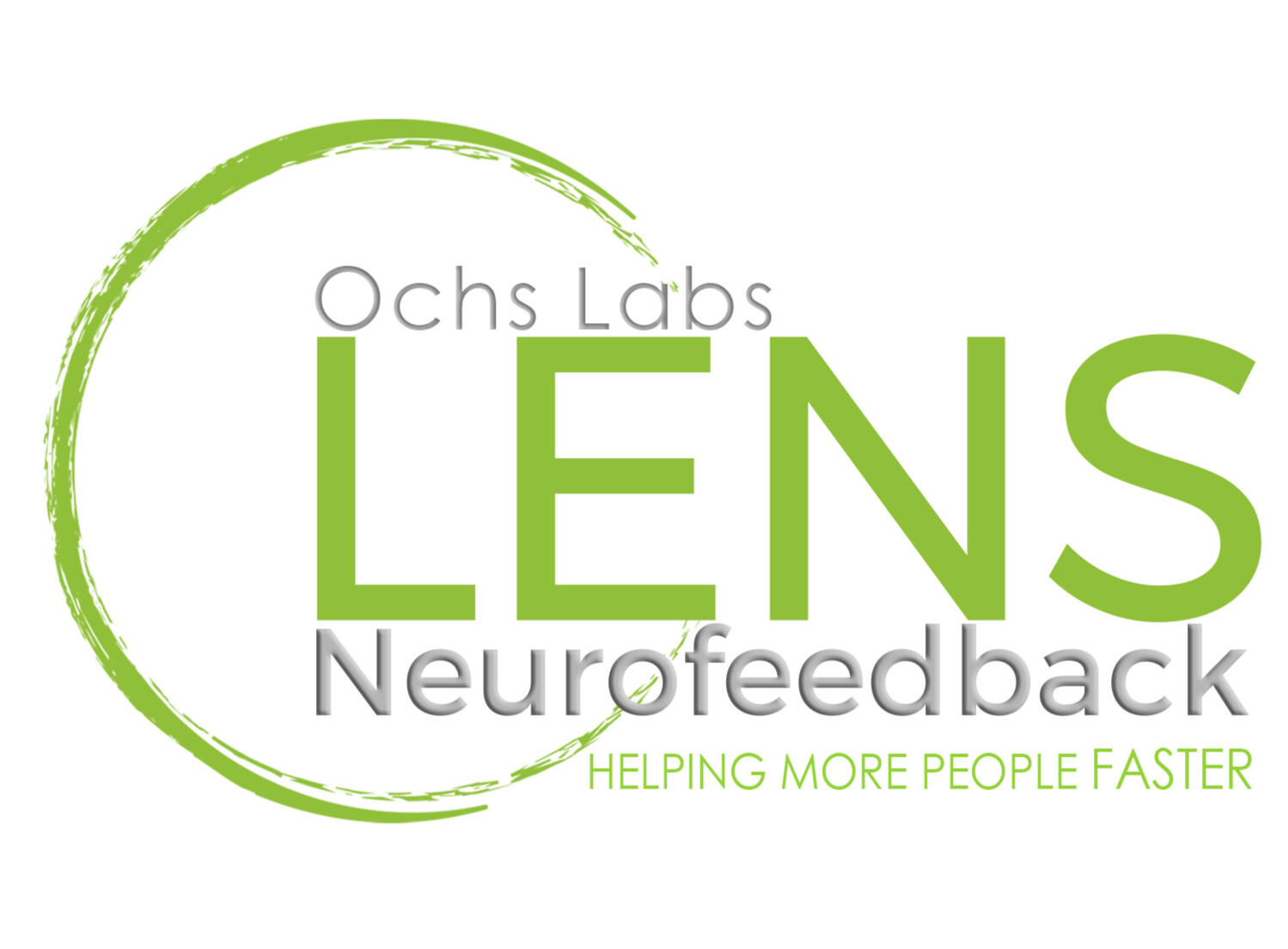
Sensory Squad O.T.
Focusing on the achievement of health, well-being, and participation in life through engagement in play, social skills, and activities of daily living.
Phone: 208-691-2096
Email: sensorysquadotcda@gmail.com
Address: 2775 N Howards Street Suite G, CDA 83814

Samantha Whiting
Occupational Therapist
Samantha completed her education at Loma Linda University in Loma Linda, California, and received her Bachelor of Science degree in Occupational Therapy in 1993. She is a board-certified Occupational Therapist. She is also a certified LENS Neurofeedback provider.With over 30 years of experience as a licensed Occupational Therapist, Samantha has dedicated her career to supporting both adults and children in achieving optimal well-being through a holistic and integrative approach to care. Her expertise spans a wide range of therapeutic modalities, with a specialized focus on self-regulation, sensory integration, and neurodevelopmental therapies.Samantha is certified in and passionately utilizes LENS (Low Energy Neurofeedback System) Neurofeedback, child-based yoga, mindfulness practices, and postural restoration techniques to foster emotional balance and physical alignment in her clients. Her comprehensive toolkit also includes Therapeutic Listening®, Integrated Listening Systems (iLs), and Unyte meditation programs—modalities designed to promote neurological organization, enhance sensory processing, and improve focus and calm.In her work, she incorporates the principles of Pilates and aquatic therapy to enhance core strength, mobility, and relaxation, tailoring each session to the individual needs of her clients. Whether working with children navigating developmental challenges or adults recovering from injury or seeking improved regulation, Samantha Whiting brings a compassionate, patient-centered approach grounded in decades of experience and ongoing professional development.Beyond her professional life, Samantha Whiting is a devoted mother to three adult children and shares a rich family life with her husband. She treasures time spent with her family and friends and finds personal renewal through swimming, walking, Pilates, and traveling.
Philosophy of Treatment
Samantha is focused on providing a highly individualized, multi-faceted, and holistic treatment approach to ensure that each child and adult's needs are met in a playful and inviting therapeutic environment.
Education
Loma Linda University, Loma Linda, California
Bachelor of Science in Occupational Therapy, June 1993

What Is Occupational Therapy?
Occupational Therapy is a field that addresses the many aspects of a
person’s everyday life. This may range from the activities they
perform day-to-day (occupations) to the environment in which the
person spends the majority of their time. Pediatric occupational therapy
helps children gain independence while also strengthening the
development of fine motor skills, sensory-motor skills, and visual motor skills that children need to function and socialize. helping children develop the skills they need to grow into functional, independent adults. Physical impairment, injuries, and a host of other issues can hamper a child's ability to perform common tasks or progress normally through the stages of social or cognitive development.
How we do it
We work with the kids by incorporating play into their interventions. This Tactic not only helps motivate children but also helps to reduce potential anxiety they may experience through the process. This can involve games, puzzles, toys, songs, and physical exercises. Through working with pediatric occupational therapists, children are not only enabled to develop critical skills, but they often also build upon their levels of confidence and self-esteem.
Why We Do It
Occupational Therapy is trained to address sensory-processing issues and help equip parents to successfully manage their child's behavioral struggles. While parents may already be aware of sensory triggers, occupational therapists can help clarify the role of sensory processing and provide caretakers with practical advice on how to address it. Trained in primitive reflexes and ILS.

Holistic OT
Holistic Occupational Therapy combines OT with complementary and integrative health techniques to begin to help the client on a deeper
level. This involves complementary and alternative medicine practices.These practices will utilize a variety of holistic approaches including
therapeutic yoga, meditation techniques, orthopedic techniques,
restorative treatments, as well as traditional techniques to work with
the person to improve their connections to the mind, body, and spirit. This will then give them empowerment, confidence, and self-awareness.
Benefits and uses of certain Treatments in OT
Benefits of kids yoga:
Improve physical strength, physical, balance, emotional flexibility, increased patience, self-control, self-regulation, positive increases in mood, increased motivation, calm and focus, self-awareness, empathy, resilience, begin realizing that there is alignment in their minds/bodies/emotions, to begin recognizing the ways and times they experience calm and joy, to tap into the ways mind/body/emotion can be impacted by their breath and movement, and to foster resilience and strength. When we teach these things to kids, we see some incredible things begin to emerge--confidence soars, communication is improved, physical strength and emotional flexibility increased, empathy grows, and community flourishes with emphasis on mindful learning, inclusion, and social-emotional development
Benefit of kids mindfulness:
Increased self-control, improved mood, more patience, adaptability, motivation, problem-solving, improved school performance, self- control and self-regulation, ability to develop identity, empathy, confidence, increased call and focus, resilience. We teach "everyday mindfulness" in order for kids to practice incorporating mindfulness into their daily habits and routines. In doing so, kids learn to use mindfulness techniques at home, at school, in relationships, in their communities, and even in play.
The Postural Restoration Institute® (PRI) was established to explore and explain the science of postural adaptations, asymmetrical patterns, and the influence of polyarticular chains of muscles. Our mission is based on the development of an innovative treatment that addresses the primary contributions of postural kinematic movement dysfunction. Restoring Symmetrical Respiration and Movement to Optimize Functional Development and Meaningful Play
Integrated Listening system ILs provides programs that improve cognitive, language, and social abilities. As our brain/body connection becomes more organized, we better process the world around us and become more confident, happy, and engaged. The iLs methodology integrates music, movement, and language exercises for the purpose of improving brain function. iLs programs are designed to be fun and may be used on their own or in conjunction with other methods.
Therapeutic Listening® is an evidence-based auditory intervention intended to support individuals who experience challenges with sensory processing dysfunction, listening, attention and communication.We train for brain/body integration through a staged approach, starting with the fundamentals of sensory integration and then extending through more complex cognitive functions, including language, self-expression, and social skills.
Unyte is an effective, safe, and innovative way of introducing meditation and relaxation training to clients. It can be integrated into practice in a variety of ways to complement your treatment program and support clients’ stress management and wellness needs.

LENS
Low Energy Neurofeedback System
Call 208-691-2096
To schedule your LENS
appointment with Sensory Squad OT
Body LENS
$125
Each SessionHead LENS
$125
Single SessionHead LENS
$550
5 Session Package
Head LENS
$1,000
10 Session PackageHead LENS Family Package
$1800
Family of 2 (20 Session Package)Head LENS Family Package
$2,400
Family of 3 (30 Session Package)
Discover the incredible potential of neurofeedback
and how it can empower you.
Fast, effective, and non-invasive.
Got pain?
The body is both a biochemical and a bioelectrical system. Medication works on the chemical system, while LENS works on the electrical system. We might think of LENS helping the body to reboot, like a computer that is no longer functioning optimally. LENS is just as safe and effective as traditional neurofeedback and works much more quickly, saving both time and money.
Achieve Your Best Brain Ever!
Our Therapy Treatments are:- Non-Invasive
- Drug Free
- Quick Sessions
- No Pain
- Fast Results
- Long Lasting Result
- Affordable
- Suitable for Toddlers to the ElderlyLENS Treatment - what is it like?
The treatment itself consists of sitting quietly in a chair with your eyes closed, while the neurofeedback practitioner applies a tiny electrode with conductive paste to your scalp and ear to both measure the brainwave activity and to deliver treatment. It is a noninvasive procedure painless, most find it relaxing.Treatment consists of invisible radio frequency waves that are 4,000 times weaker than what your brain is exposed to each time you hold a cellular phone to your head. Not only is the feedback signal weak, but the length of exposure to it is extremely short. The duration of actual feedback during a typical LENS (Low Energy Neurofeedback Systems) session is from one second to one minute per site on the head. It might seem impossible that a signal so weak could do anything at all, but it is effective because the brain can respond to the low-energy signal, whereas it would react and defend against a stronger one.Neurofeedback clinicians have noticed a strong connection between excessive activity in the EEG, particularly in the slower brainwaves, and difficulties with mood, energy, focus, and mental clarity. Trauma and stress tend to cause EEG suppression, in which the brain protects itself from overload and seizure activity by reducing activity, which in turn limits functioning. In this case, the person doesn’t have the full range of emotions, thoughts and abilities they once had. LENS helps to normalize both excess activity and suppression in the EEG, and people feel better and are able to do more of what they want. Most people who receive LENS treatment report feeling more calm, relaxed, and in control of themselves.
Text